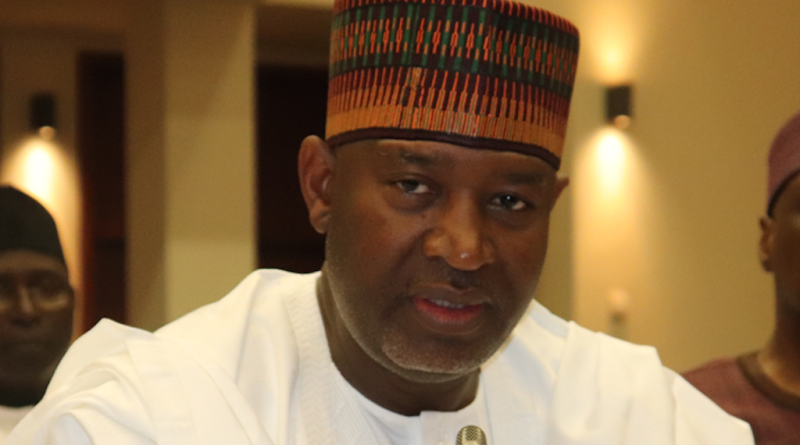Why Gov Radda hasn’t erred, By Sirajo Yakubu
While public morality demands ethical leadership, it cannot override the rule of law. The paper concludes that legality and morality must coexist, but legal innocence must remain the foundation of justice.
Introduction
In Nigeria’s democracy, public appointments often ignite controversy whenever morality collides with legality. The recent appointment of Hadi Sirika, former Minister of Aviation as Pro-Chancellor of Umaru Musa Yar’Adua University (UMYU) exemplifies this intersection. Critics cite ongoing allegations against him as evidence of moral unfitness, while defenders emphasise that no court has convicted him of any offence.
The essence of the issue lies in a fundamental constitutional doctrine: a person is presumed innocent until proven guilty by a competent court of law. The Governor of Katsina State, Dikko Umaru Radda, acting as the Visitor to UMYU, has exercised his powers lawfully. This essay defends the appointment as constitutionally valid, while acknowledging the broader moral expectations surrounding public leadership.
The Legal Foundation of the Appointment
Under the Umaru Musa Yar’Adua University Law, the Governor of Katsina State, as the Visitor, possesses the statutory authority to appoint the Pro-Chancellor and members of the University’s Governing Council. Nothing in that law or the 1999 Constitution of the Federal Republic of Nigeria (as amended) disqualifies Mr Sirika, a former senator from such an appointment.
Section 36(5) of the Constitution expressly states that “Every person who is charged with a criminal offence shall be presumed innocent until he is proved guilty.” This principle protects individuals from prejudicial treatment based on allegations. Unless and until a competent court convicts a person, he or she cannot be legally regarded as guilty or deprived of civic rights.
In Fawehinmi v Inspector-General of Police, the Supreme Court affirmed that no individual may be treated as a criminal without trial and conviction. The decision reinforced that the rule of law demands respect for due process and judicial determination, not speculation or political sentiment. Thus, Mr Sirika remains innocent before the law and eligible for appointment.
Discretion and Executive Authority
The Governor’s decision falls within the domain of executive discretion. Administrative law recognises that public authorities may exercise discretion so long as their actions are lawful, rational, and procedurally fair. Unless it can be shown that the appointment was made in bad faith or contrary to law, the courts will not intervene.” By appointing Mr Sirika, the Governor acted within the boundaries of his statutory powers.
The position of Pro-Chancellor, while important, is not one requiring legislative screening or confirmation. It is typically an honorary and advisory role, reserved for respected figures capable of offering policy direction and institutional oversight. Therefore, legally speaking, the appointment is valid and enforceable.
The Presumption of Innocence: A Cornerstone of Justice
The presumption of innocence is a universal doctrine of criminal justice, enshrined not only in Nigeria’s Constitution but also in international law. Article 11(1) of the Universal Declaration of Human Rights (1948) and Article 7(1)(b) of the African Charter on Human and Peoples’ Rights-which Nigeria has domesticated both guarantee this principle. In FRN v Ibori, the Federal High Court emphasised that public opinion, however strong, cannot substitute for a judicial verdict.
Similarly, in Ogboru v Ibori, the Court of Appeal held that unproven allegations or investigations do not remove a citizen’s right to hold public office. These precedents affirm that guilt is not established by accusation, but by evidence tested before a competent court. Accordingly, denying Mr Sirika an appointment based solely on ongoing investigations would amount to punishment without trial, violating both constitutional and moral justice. The rule of law demands fairness to all citizens, even those under public scrutiny.
Morality and Public Perception in Governance
While the law justifies the appointment, public morality offers a parallel perspective. Universities, as centres of learning and integrity, are expected to project ethical leadership. Of course, appointment of a public figure facing allegations, even unproven, can affect institutional image and public trust. Nevertheless, morality, unlike law, is subjective and fluid.
Public opinion often shifts with political climate and media narratives. Governance must therefore rely on law as its stable foundation. Decisions made solely on moral outrage risk undermining due process and fostering mob justice. As the courts have held, justice must be grounded in evidence, not conjecture or prejudice.” Thus, while public sensitivity should guide government choices, legality must remain the decisive criterion. The law does not and should not punish individuals based on allegations alone.
Conclusion
The appointment of Mr Sirika as Pro-Chancellor of Umaru Musa Yar’Adua University is legally sound and constitutionally defensible. The governor acted within his powers as Visitor to the institution, and no law bars Mr Sirika from holding such a position. The presumption of innocence remains a cornerstone of Nigerian and international law, and until a competent court finds otherwise, Mr Sirika is entitled to full legal and civic privileges.
While moral expectations are legitimate, they must not override legal principles. Governance requires a careful balance: morality should guide, but law must govern. The Governor of Katsina State has not erred; he has merely upheld the Constitution. In doing so, he reinforces a crucial message that in a democracy governed by the rule of law, innocence remains the default position until guilt is proven.
Sirajo Yakubu
* Mr Sirajo Yakubu, Principal Partner of the Law Office, Sirajo Yakubu & Co wrote from Abuja. He can be reached through [email protected]


